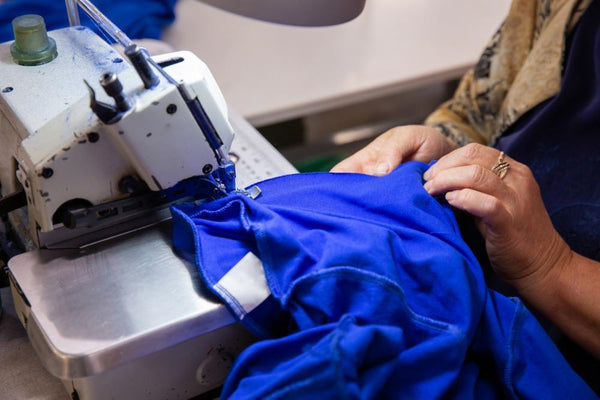If we go back to a time before fashion was such a major industry (and the industry was really the apparel industry not the fashion industry), shopping for clothes and accessories used to be a special and occasional event. Most people only bought new clothes a few times a year when they outgrew something or when the seasons changed and an item was worn out.
Then, in the 1970s-1980s fashion and retail companies started heavily branding and mass-producing clothes and accessories to keep up with the increasing demand and consumer culture. Fashion items were marketed for a specific season of a specific year, and when that season passed, that item was no longer on trend. This obviously increased overall demand as consumers needed to continue to purchase new items even if their closets were full of perfectly serviceable clothes. They had to in order to keep up with the “current” season.
Speeding up the seasonality of fashion items only increased this demand and thus fast fashion was born. Clothes became cheaper, shopping became a hobby instead of a necessity, and trends started changing more and more rapidly.
While this might seem like a positive for people who love buying new clothes and staying updated with the current trends, the fast fashion industry’s mass production and rapid use of natural resources have taken an alarming toll on the environment and basic human rights.
Here are the biggest secrets of the fast fashion industry that may cause you to switch to sustainable fashion brands:
Fast Fashion is the Second Largest Contributor to Water Pollution
Textile dyeing is one of the biggest culprits behind water pollution and dumps huge amounts of toxic chemicals and carcinogens in clean waters. To keep up with the rapid demand for new clothes and garments, the fast fashion industry also produces synthetic fabrics that are easier, faster, and cheaper to make. However, these fabrics, such as polyester, shed microplastics each time they are washed, ending up getting dumped into our oceans and destroying coral reefs and marine life.
Fast Fashion is Increasing Garment Waste at an Exponential Rate
The culture of disposable clothes created by the fast fashion industry has resulted in overflowing landfills all over the world. In the United States alone, an astonishing 13 trillion tons of garment waste ends up in landfills each year, with only 10% of the donated clothes getting reused and recycled. The growing landfills increase land pollution and also seep into the ground and contaminate the water supply of the area.

Fast Fashion Supports a Form of Modern-Day Slavery
Another pernicious cost of fast fashion is the violation of basic human rights as it exploits millions of people in third-world countries by offering them less than $3 per day to produce fashion products. Millions of people have little choice but to work up to 14-hour days in horrible conditions to allow major fashion brands to keep up with the increasing demand for trendy clothing for each season.
You might ask why these poor workers don’t just get another job. Well, fashion has migrated its production to the poorest countries in the world in order to have a cheap labor force. In many of these under-developed countries there is a large and uneducated population. A population that must choose between extremely limited options when it comes to an occupation. In most cases, the wage, as low as it is, is necessary to cover basic necessities and nothing more. Large fashion brands are able to exploit that lack of choice as well as the unregulated legal systems of these third-world nations, to effectively put workers in a no-win situation.
Popular brands such as Nike and Zara have been accused of using sweatshops and child labor and allowing workers to work under inhumane conditions to keep their production costs low and increase their company bottom lines. Legally, companies have been able to hide behind the fact that they don’t own the factories that make their products - but when a factory is disproportionately producing for a massive brand at the very low prices those brands demand, labor suffers.
Support Ethical Clothing and Shop from an Inspired Line of Fashionable Options
Equal Hands is a leading fashion-forward, socially sustainable lifestyle brand that sources premium quality handmade sustainable clothing and items directly from the makers - local artisans from all over the world. They ensure that the designers and brands they offer follow their three pillars of sustainability – people, planet and progress, following their mantra that when you shop we donate. Equal Hands also offers upcycled items and one of a kind vintage pieces, so you are not buying something that had to be newly made; but rather are buying something that existed already and has been refurbished and upgraded with a unique Equal Hands style.
Shop responsibly, with a brand that cares about both fair labor and your carbon footprint- Equal Hands.

0 comments